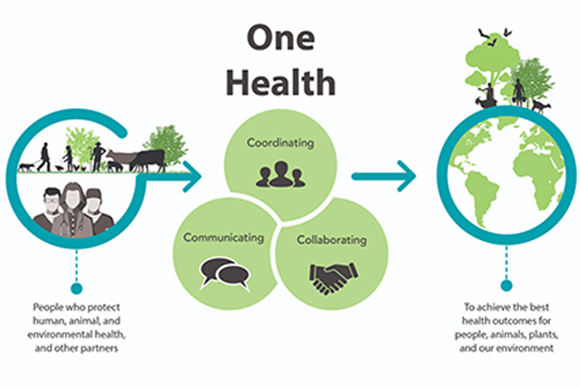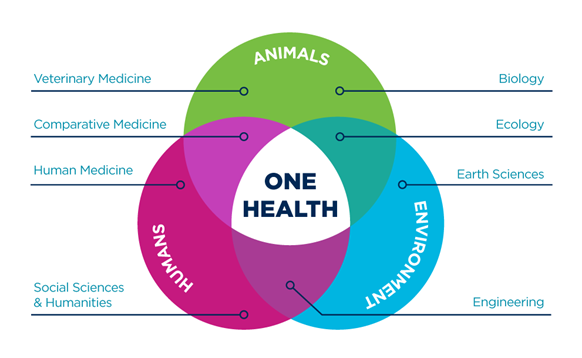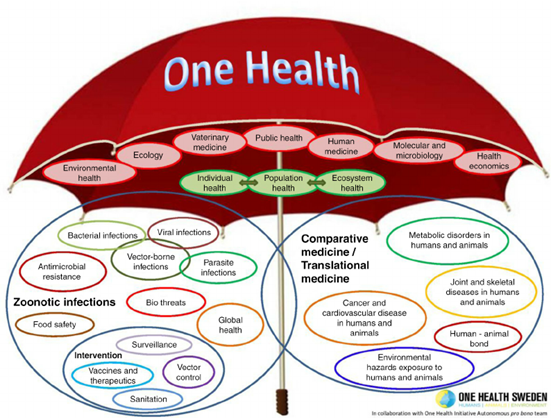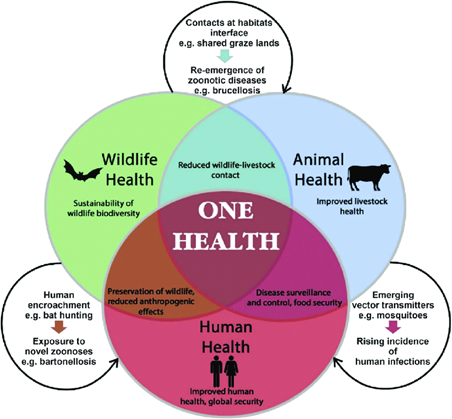

One Health is a collaborative, multisectoral, and transdisciplinary approach - working at the local, regional, national, and global levels - with the goal of achieving optimal health outcomes recognizing the interconnections between human, animal, plant, environmental, and ecosystem health.
Key Principles of One Health
- Recognizing the interconnections between human, animal, environmental, and ecosystem health.
- Promoting cross-disciplinary collaboration
- Addressing health challenges at the human-animal-environment interface
- Emphasizing early detection and disease prevention
One Health Visualizations




Dr. Kahn's One Health Rubik's Cube

Dr. Kahn's Contributions to One Health
Dr. Laura H. Kahn has been a pioneer in the One Health movement. Her 2006 publication "Confronting Zoonoses, Linking Human and Veterinary Medicine" in the CDC's Journal of Emerging Infectious Diseases helped launch the One Health Initiative.
One Health Initiative
The One Health Initiative is a movement to forge co-equal, all-inclusive collaborations between physicians, osteopathic physicians, veterinarians, dentists, nurses and other scientific-health and environmentally related disciplines.
Learn more about the One Health Initiative: One Health Initiative Website
Dr. Kahn's One Health Course
Dr. Kahn developed the course "Hogs, Bats, and Ebola: An Introduction to One Health Policy" at Princeton University. This course was later adapted into a free, online Coursera course titled "Bats, Ducks, and Pandemics: An Introduction to One Health Policy."
You can now access this course content on YouTube: One Health Policy Course on YouTube
Further Reading
For more in-depth exploration of One Health concepts and their applications, consider reading Dr. Kahn's books:
- "One Health and the Politics of Antimicrobial Resistance" (2016)
- "One Health and the Politics of COVID-19" (2024)